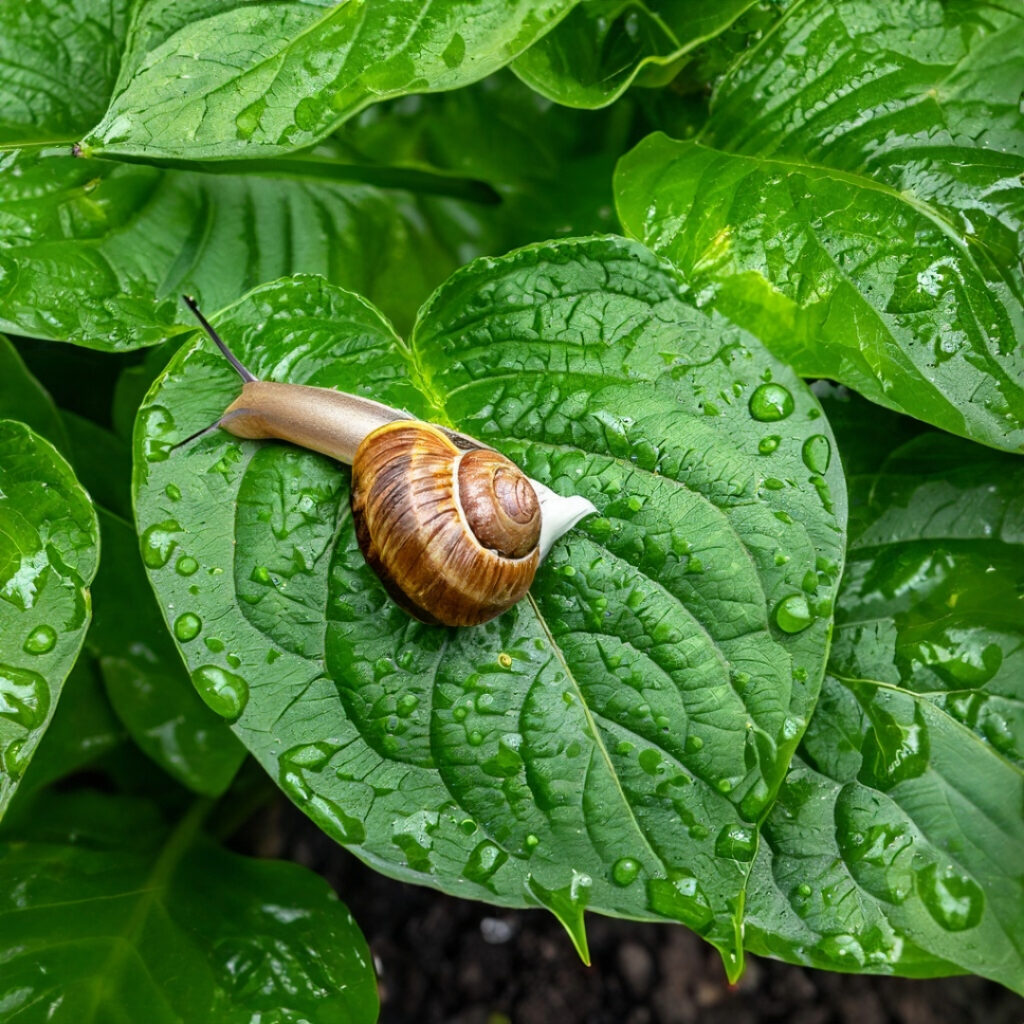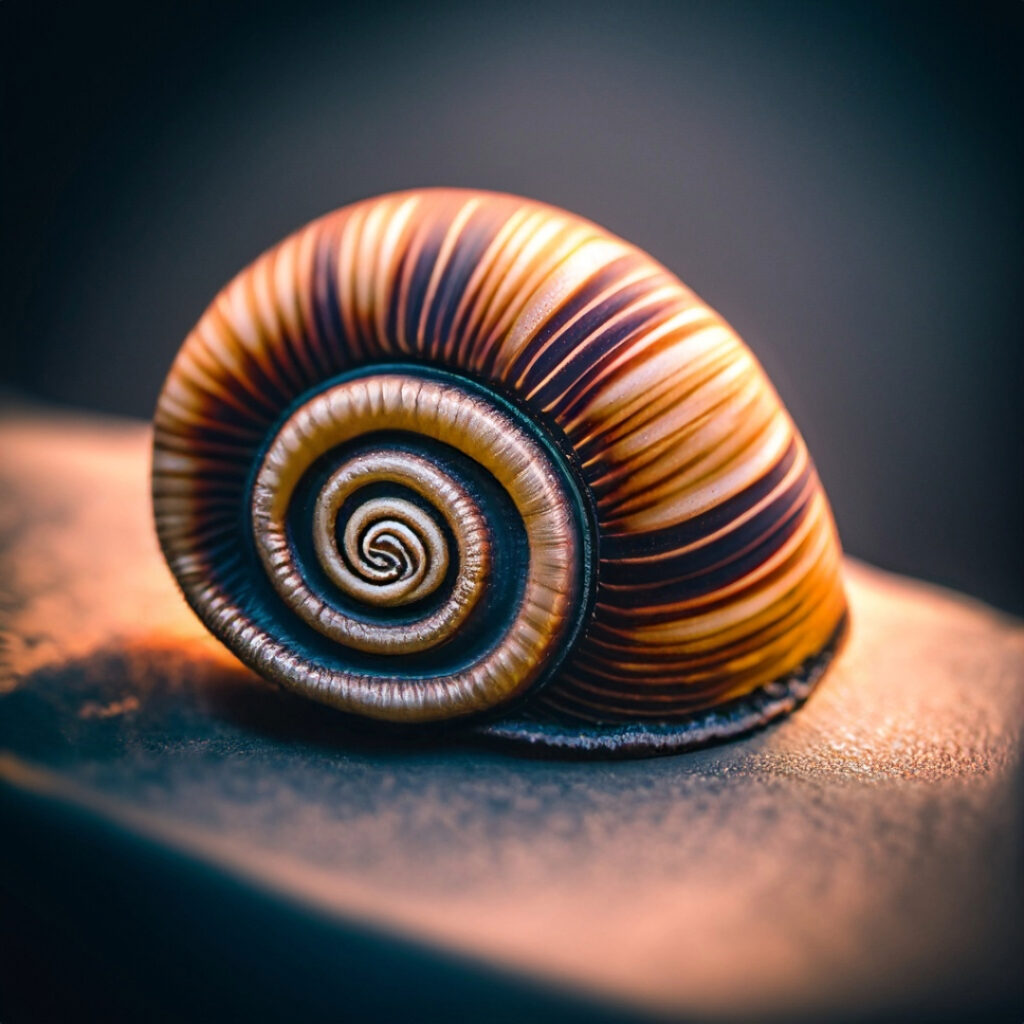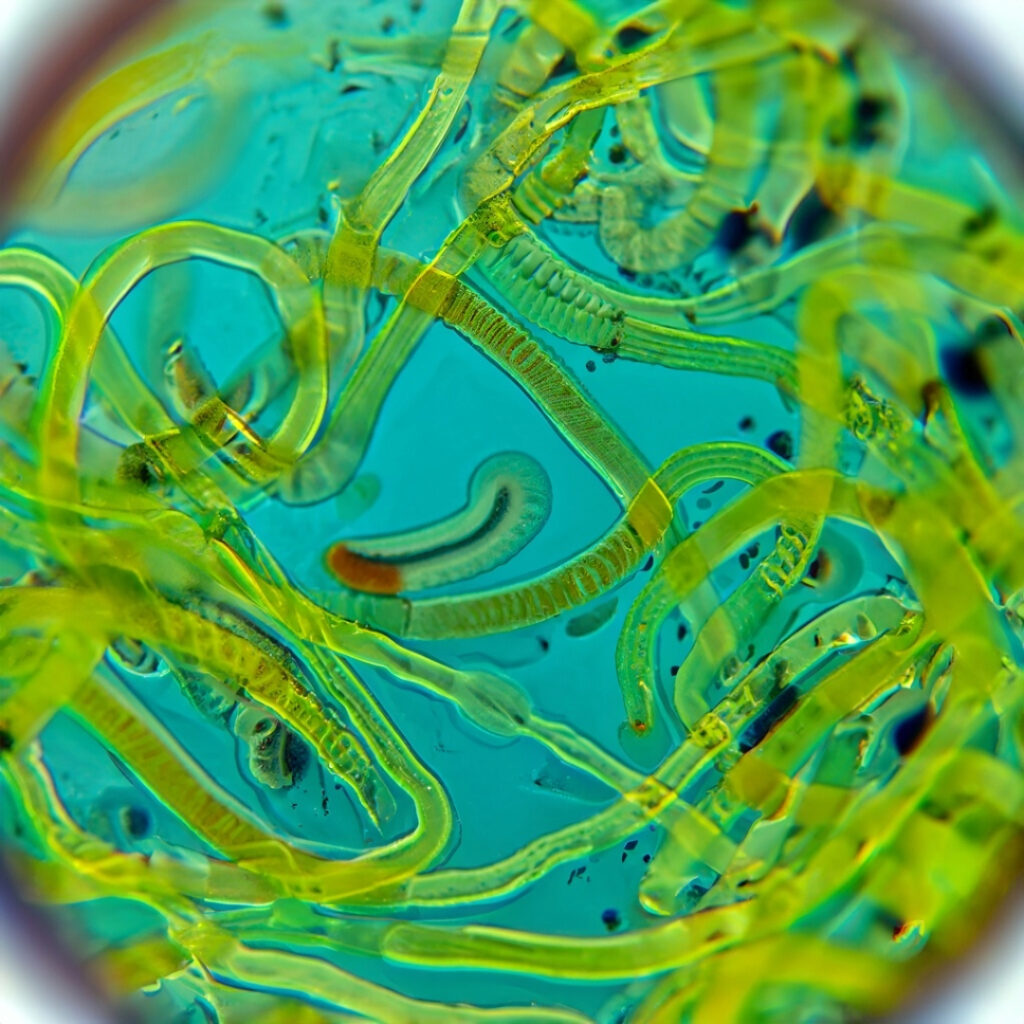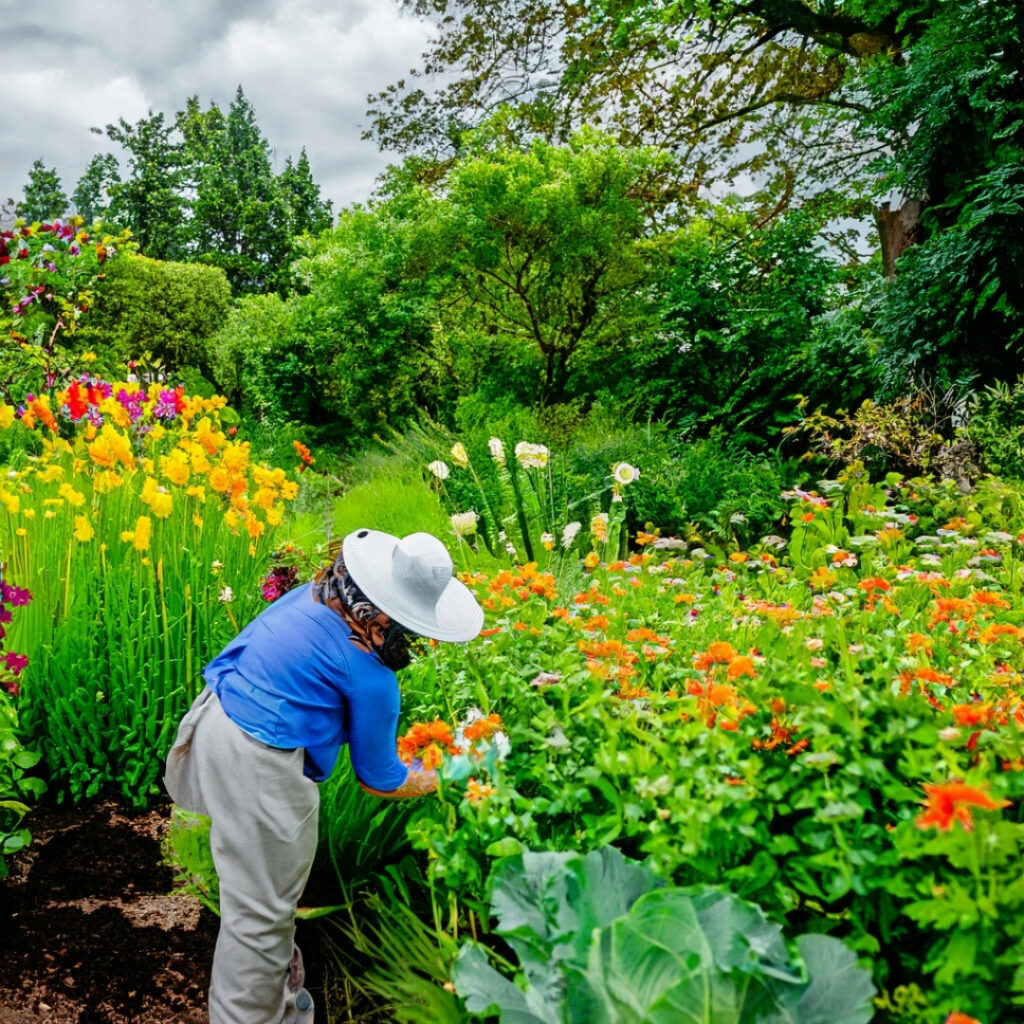Join us on a journey to explore how nematodes can be your go-to solution for slugs and snails, offering a sustainable and harmonious approach to gardening. It’s time to embrace a solution that aligns with the growing interest in organic practices, and what better way than with the help of nature’s own.
Nematodes for slugs and snails are microscopic roundworms used in organic gardening to control these pests. Specifically, the nematode species phasmarhabditis hermaphrodita targets slugs and snails by entering their bodies and releasing bacteria that decompose them from within. This method provides an eco-friendly alternative to chemical pesticides, taking between 4 to 21 days to kill the pests. Nematodes offer a natural and effective solution for slug and snail control in gardens.

🐌 Nematode Nugget: Consider nematodes as part of your holistic garden care strategy. They’re not only effective but also support the natural balance of your garden ecosystem. 🐌
Understanding Nematodes
What Are Nematodes?
Nematodes, specifically known as phasmarhabditis hermaphrodita, are microscopic roundworms naturally found in the soil. They are a vital part of our ecosystem, playing a unique role in biological slug control. But how do they achieve this feat? Let’s delve into their fascinating world.
How Nematodes Kill Slugs and Snails
Nematodes target slugs and snails in a remarkable way. Here’s a step-by-step look at their process:
- Step 1: Nematodes enter the slug’s body through the respiratory opening (mantle cavity).
- Step 2: Once inside, they release bacteria that begin to decompose the slug from within.
- Step 3: The slug dies within 4 to 21 days, providing a natural and effective pest control method.
🐌 Nematode Nugget: Biological slug control with nematodes is not only effective but also safe for other garden inhabitants. Consider them as allies in maintaining a balanced garden ecosystem. 🐌
Benefits of Using Nematodes
The Natural Approach: Embracing Nematodes
The use of natural nematodes for slugs and snails is gaining traction among gardeners looking for eco-friendly solutions. But what makes them so special? Here’s a look at the key benefits:
- Environmentally Friendly: Unlike chemical pesticides, nematodes are a natural part of the ecosystem, making them a sustainable choice.
- Effective Against Various Pests: Known as one of the best nematodes for slugs and snails, they target these pests without harming beneficial insects.
- Safe for Pets and Humans: Being non-toxic, they pose no risk to pets, wildlife, or human health.
- Easy to Apply: Nematodes are available in easy-to-use forms, making their application simple for gardeners of all experience levels.
🐌 Nematode Nugget: Consider timing your nematode application with the moist conditions of early spring or autumn (fall). It provides the perfect environment for these microscopic allies to thrive! 🐌

A Future of Harmonious Gardening
Embracing the use of nematodes for slugs and snails is more than just a gardening trend. It’s a step towards a future where our gardens are nurtured with respect for nature. By understanding and applying the best nematodes for slugs and snails, we align our gardening practices with the rhythms of the earth, fostering a harmonious relationship with the environment.
How to Apply Nematodes in Your Garden
Embracing Nature’s Solution: A Guide to Using Nematodes
When it comes to how to deal with slugs and snails in the garden, nematodes present a harmonious solution. Here’s a step-by-step guide to help you unleash the power of these microscopic warriors against pesky slugs:
Step 1: Choose the Right Nematodes
Not all nematodes are created equal. Select nematodes specifically designed for slugs and snails. Look for reputable suppliers that offer phasmarhabditis hermaphrodita.
Step 2: Prepare the Garden
Ensure the soil is moist but not waterlogged. Water the garden a few hours before application if needed. The moist soil (at least 5°C or 41°F) helps the nematodes move.
Step 3: Mix with Water
Follow the instructions on the packaging. Generally, mix the nematodes with water in a watering can or sprayer. Stir well to ensure an even distribution.
Step 4: Apply to the Garden
Spray or pour the nematode mixture evenly across the garden, focusing on areas with visible slug damage. Apply during early morning or late afternoon for best results.
Step 5: Keep the Soil Moist
Water the garden regularly over the next two weeks to keep the soil moist. It helps the nematodes spread and reach the slugs.
🐌 Nematode Nugget: When considering how to deal with slugs and snails in the garden, remember that patience is key. Nematodes will begin to reduce the slug population in a few weeks, but complete control may take longer. 🐌
Embrace the Organic Way
By following these steps, you can enjoy the benefits of biological slug control in your garden. It’s a journey towards a more natural, sustainable, and harmonious way of gardening.

Common Concerns and Misconceptions
Understanding Nematodes: Living Allies
One of the common misconceptions about nematodes is whether they are alive. Nematodes are indeed living organisms, microscopic roundworms that play a crucial role in natural pest control. Understanding their lifecycle can help you use them more effectively in your garden.
Are Nematodes Safe for Cats?
A concern many gardeners share is the safety of nematodes for their furry friends, especially cats. Rest assured, the nematodes used for slug control are not harmful to mammals, including your beloved pets. They target slugs and snails specifically without affecting other organisms.
Alternative Solutions: Neem Oil
Some gardeners wonder, “does neem oil kill slugs and snails?” Neem oil can indeed deter slugs, but it doesn’t kill them. It’s an alternative to consider if you’re looking for varied natural pest control methods. However, nematodes offer a more targeted and effective solution.
🐌 Nematode Nugget: Always follow the instructions when applying nematodes or other natural pest control methods like neem oil. Proper application ensures safety for both plants and animals in your garden. 🐌
Embracing Nature with Confidence
Understanding the nature of nematodes and addressing common concerns empowers you to embrace biological slug control with confidence. Whether it’s the safety of your pets or exploring alternatives like neem oil, knowledge dispels myths and paves the way for a more harmonious garden.
🐛 Vegans View: “Using nematodes to control slugs and snails is no different to introducing ducks into your garden, except with less quackery. Ducks are considered a very natural permaculture form of slug control. I find that both options align with my values. It’s all about balance and harmony in nature.” – Mahalia (occasional vegan) 🐛
Where to Buy and DIY Options
Finding Nematodes for Sale
Finding the right nematodes, specifically phasmarhabditis hermaphrodita, for slug control is easier than ever. Here’s where you can look:
- Garden Centers: Many local garden centers offer nematodes for sale, catering specifically to organic gardening needs.
- Online Retailers: Websites that specialize in organic gardening products often have nematodes, including the specific species you need.
- Farmers’ Markets: Check with vendors at your local farmers’ market, as they may have connections with suppliers of biological pest control products.
🐌 Nematode Nugget: When purchasing nematodes, ensure they are sourced from reputable suppliers. Quality matters for effective slug control. 🐌
DIY: Making Your Own Slug Nematodes
Cultivating your own nematodes (particularly the species Phasmarhabditis hermaphrodita used for slug control) at home is a process that requires careful planning, specific equipment, and adherence to safety and ethical guidelines. Here’s an overview of the general steps to cultivate nematodes DIY:
- Research and Obtain a Starter Culture: Purchase a small starter culture of the specific nematode species you wish to cultivate. Ensure that you are working with a species that is legal and safe to propagate in your region.
- Prepare the Culture Medium: Prepare a suitable culture medium. For nematodes, this usually consists of a liquid nutrient broth containing elements like peptone, yeast extract, and salts. Follow specific recipes tailored to the nematode species you are culturing.
- Sterilize Equipment: All equipment and containers must be sterilized to prevent contamination from other microorganisms.
- Inoculate the Culture Medium: Introduce the starter culture of nematodes into the prepared medium. This is usually done in a sterile environment, such as a laminar flow hood, to prevent contamination.

- Maintain Optimal Growth Conditions: Nematodes will require specific temperature, pH, and oxygen levels to grow. Monitor and maintain these conditions carefully.
- Monitor Growth: Regularly check the culture to ensure that it is growing and not contaminated. This might require a microscope.
- Harvest the Nematodes: Once the culture has reached the desired density, the nematodes can be harvested. This might involve centrifugation or sieving, depending on the species and culture method.
- Store or Use Immediately: Depending on your needs, you might use the nematodes immediately or store them under appropriate conditions for later use.
- Follow Ethical and Legal Guidelines: Always ensure that you are adhering to all local regulations regarding the cultivation and release of nematodes.
- Dispose of Waste Properly: Any waste materials must be treated as biological waste and disposed of according to local regulations.
Please note that this is a simplified overview, and cultivating nematodes requires specialized knowledge and equipment. It may not be feasible or legal in all situations. Always consult with a professional or refer to scientific literature for detailed instructions tailored to the specific species you are interested in cultivating.
Conclusion
In the beutiful journey of organic gardening, nematodes for slugs and snails play a crucial role in keeping these pesky creatures at bay. From understanding the biology of nematodes to their application, benefits, and even DIY options, the world of phasmarhabditis hermaphrodita opens new horizons for sustainable and effective gardening. Here’s a quick recap:

- Natural Control: Nematodes offer a biological slug control method that aligns with organic principles.
- Accessibility: Available for purchase or DIY cultivation, giving gardeners flexibility.
- Safety Considerations: Safe for other wildlife, including your feline friends.
- Application Guide: Simple and straightforward application for gardeners of all levels.
🐌 Nematode Nugget: Embrace nematodes as allies in your garden, but always follow proper guidelines for the best results. Happy gardening! 🐌
Whether you’re a seasoned gardener or just starting your organic journey, the use of nematodes can transform the way you approach slug and snail control. So why not give it a try? Your garden will thank you, and so will Mother Earth.
